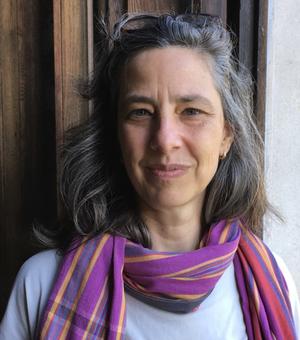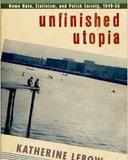Dr Katherine Lebow
I work on 20th century East Central Europe with an emphasis on Poland. My first book explored the everyday politics of Stalinism in the Polish ‘new town’ of Nowa Huta, arguing that later waves of opposition to Communist rule must be understood in relation to earlier, widespread engagement and participation in ‘building communism’ in the wake of World War II.
My monograph in progress, The People Write! Polish Everyman Autobiography from the Great Depression to the Holocaust, is a history of democracy and authoritarianism ‘from below’. It draws upon a unique body of autobiographical writings by Polish workers, peasants, the unemployed, and other marginalized groups, gathered by sociologists in the 1920s and 1930s through popular prize competitions. Exploring their narratives of body and subjectivity, selfhood and citizenship, nation and community, and gender and sexuality, I show that grassroots democratic discourse was far more complex and contested in interwar East Central Europe than often imagine.
The above project has had several offshoots, including a forthcoming article in The Journal of Modern History based on memoirs by civilians who survived WWI on the Eastern Front as children; workshops and articles on interwar East Central Europe as a site for the production and circulation of social scientific knowledge; and a forthcoming translation (OUP), with Anna Müller of feminist activist Halina Krahelska’s chronicle of Warsaw in World War II. I also have teaching and research interests in Polish Jewish history, including an early-stage project on Polish Jews in the 1980s against the transnational backdrop of diasporic Jewish politics.
Featured Publication
In the Media
'The People Write! Polish Everyman Autobiography from the Great Depression to the Holocaust’
‘The People Write! Polish Everyman Autobiography from the Great Depression to the Holocaust’:
Current DPhil Students
Teaching
I would be happy to hear from prospective graduate students working on 20th c. Central/Eastern/Southeastern Europe, including those applying to Global or Women's, Gender and Queer History.
I currently teach:
| Undergraduate Papers | Graduate Papers |
|
Europe Divided, 1914-1989 |
Europe in the Twentieth Century, 1914-1970: National, transnational and international histories |
|
European and World History, 1814-1914: Society, Nation and Empire |
Selfhood in history: 1500 to the present |
| Revolutions of 1989 | |
| Viewing Communism: Cinema and Everyday Life in Eastern Europe, 1944-1989 | |
| Jews in Poland in the 20th Century: History and Memory | |
| Disciplines of History |





